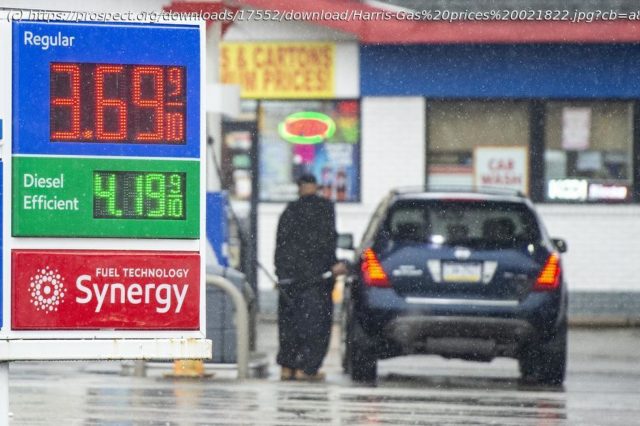The energy transition is already here, but so are midterm-killing gas increases. Climate hawks are winning the war and losing the battle.
With gas prices hitting $3.50 a gallon nationally and the threat of war in Europe driving fuel costs higher, right-wing lawmakers are scrupulously on message: Blame inflation and effete environmentalism. Democrats, on the other hand, are scrambling for a story. As the electoral threat sinks in, proposals abound. Tax fossil fuels less; tax fossil fuel producers more; limit crude exports; invest in clean energy to compete with China; improve supply chains; break up monopolies. Yet both progressives and moderates conceded in interviews that the short term may be a wash. Is there an immediate solution available that is both pro-worker and pro-climate? “Short answer is no,” Justin Guay, a policy strategist at the Sunrise Project, told the Prospect. “These are long-term structural challenges with no easy short-term fix,” Guay said. “The only way to reduce the economic pain from surging and volatile gas prices is to get off the stuff.” SEVERAL VULNERABLE DEMOCRATS are currently proposing one response to relieve public frustration: Suspend the federal gas tax. Sens. Mark Kelly (D-AZ) and Maggie Hassan (D-NH), who anticipate grueling re-election campaigns, say suspending the levy at gas pumps would blunt the pain faced by working families, who are also seeing elevated costs in health and housing. The White House is reportedly sympathetic, though some staffers worry the tax will be hard to reinstate once lifted. Jamal Raad, executive director of Evergreen Action, a clean-energy organization with close ties to the White House, declined to take a position on the lawmakers’ proposal, but said “we should give them some latitude.” “There is a direct line between the price of gas and presidential approval,” he added. Yet even if climate activists are willing to subordinate short-term priorities on energy use to electoral ones, a gas tax holiday wouldn’t necessarily achieve much. While it sounds populist, energy economists and market analysts said it could increase gas consumption without bringing down prices. At current levels, the federal gas tax of 18.4 cents per gallon accounts for around 5 percent of the nationwide price. That’s much lower than it used to be in real terms, according to Ben Cahill, an energy analyst at the Center for Strategic and International Studies, because it is fixed and never adjusts for inflation. “All else being equal,” Cahill told the Prospect, “a gas tax holiday would encourage more consumption, adding to market tightness.” The supply of gas available to consumers also isn’t very flexible. The growth of fracking—a form of oil extraction that can be revved up faster in response to new demand—had relaxed that rule somewhat. But wells have been allowed to close after a years-long shale oil binge proved unprofitable, so oil and gas supply remains fairly inelastic in the short term.






